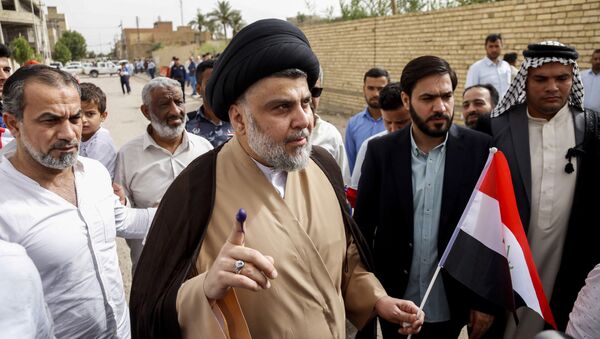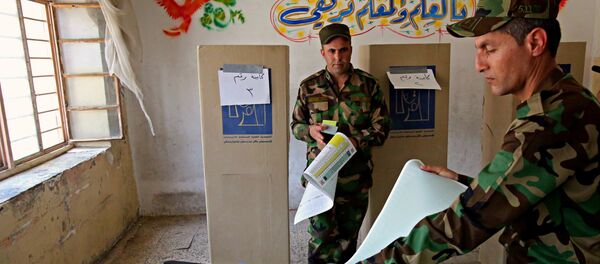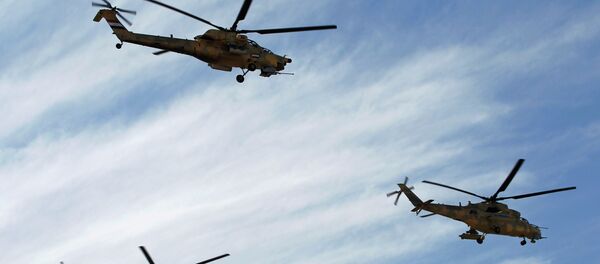According to Iraq's electoral commission, the coalition of the 44-year-old populist cleric, an anti-corruption activist and former anti-American militia leader, has won a plurality across much of the country. Amid a voter turnout rate of 44.52 percent, or 10.7 million people, the Sairun bloc took at least 1.3 million votes, giving it 54 seats in the country's 328-seat unicameral parliament.
Al-Sadr himself did not run and is not eligible to become the country's next leader. Still, his bloc's strong result means he has a chance to serve as a political kingmaker.
Enemy of America, But No Ally to Iran
Coming from a well-known family of Shiite theologians, Moqtada Al-Sadr first made a name for himself in the aftermath of the 2003 invasion of Iraq. At that time, he organized a political and military movement known as the Mahdi Army in the Sadr City area of Baghdad and further south, becoming a thorn in Washington's side and waging a guerrilla war against the coalition occupation forces. After the US withdrew from Iraq in 2011, al-Sadr temporarily retreated from politics, re-emerging in the mid-2010s to criticize government corruption, challenge Baghdad's warming ties with Tehran and urge all foreign forces, including Iranian ones, to leave the country after the end of the war against Daesh.*
Political Transformation: From Radicalism to Moderation
Al-Sadr's return to the political spotlight began in 2016 when, together with Iraq's not insignificant Communist Party, the former militia leader organized mass anti-corruption demonstrations in the country's capital. The protests, which soon turned into weekly affairs, saw the cleric calling for reforms, the removal of incompetent ministers and the elimination of the religion-based quotas that determine the composition of the cabinet. Only Iraq's difficult war against Daesh seemed to restrain al-Sadr and his followers from overthrowing the government entirely. Notably, Mahdi Army veterans took part in the war.
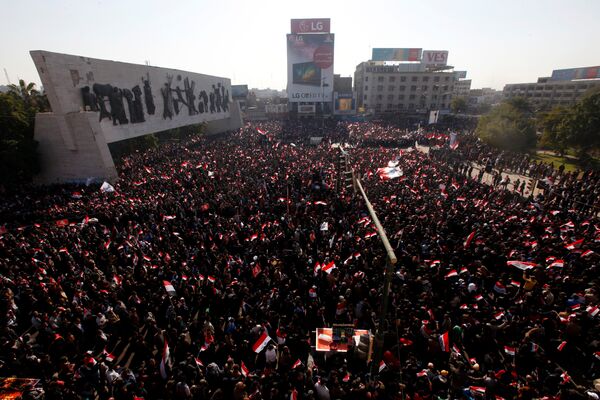
After Baghdad declared victory over Daesh in late 2017, al-Sadr announced plans to create a new bloc including his Sadrist Movement, Communists and other parties to contest the May 15 parliamentary elections.
Visits to Saudi Arabia and the United Arab Emirates in 2017, and calls for Iranian ally President Bashar Assad to step down in Syria in April of that year, have prompted concerns from some observers in Tehran. However, al-Sadr has presented himself as a peacemaker, offering to mediate negotiations to iron out difficulties in relations between the Gulf monarchy and the Islamic Republic.
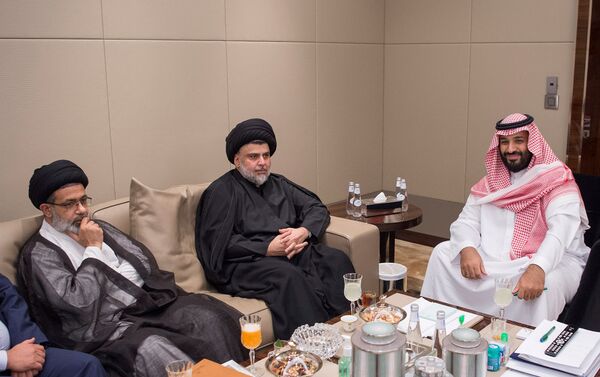
Enjoying widespread support among the country's poor and dispossessed, particularly the country's Shiite majority, al-Sadr now has the opportunity to help determine the country's political future.
The Sairun bloc's next task will be to negotiate with other blocs to try to determine the next government. Al-Sadr's win does not necessarily imply al-Abadi's ouster. In late 2017, the cleric called on Abadi to "finish what he began in the past four years." On Monday, as news of his unexpected victory emerged, al-Sadr called on the country's main coalitions to work together for the sake of Iraq's future.
*A terrorist group banned in Russia.
